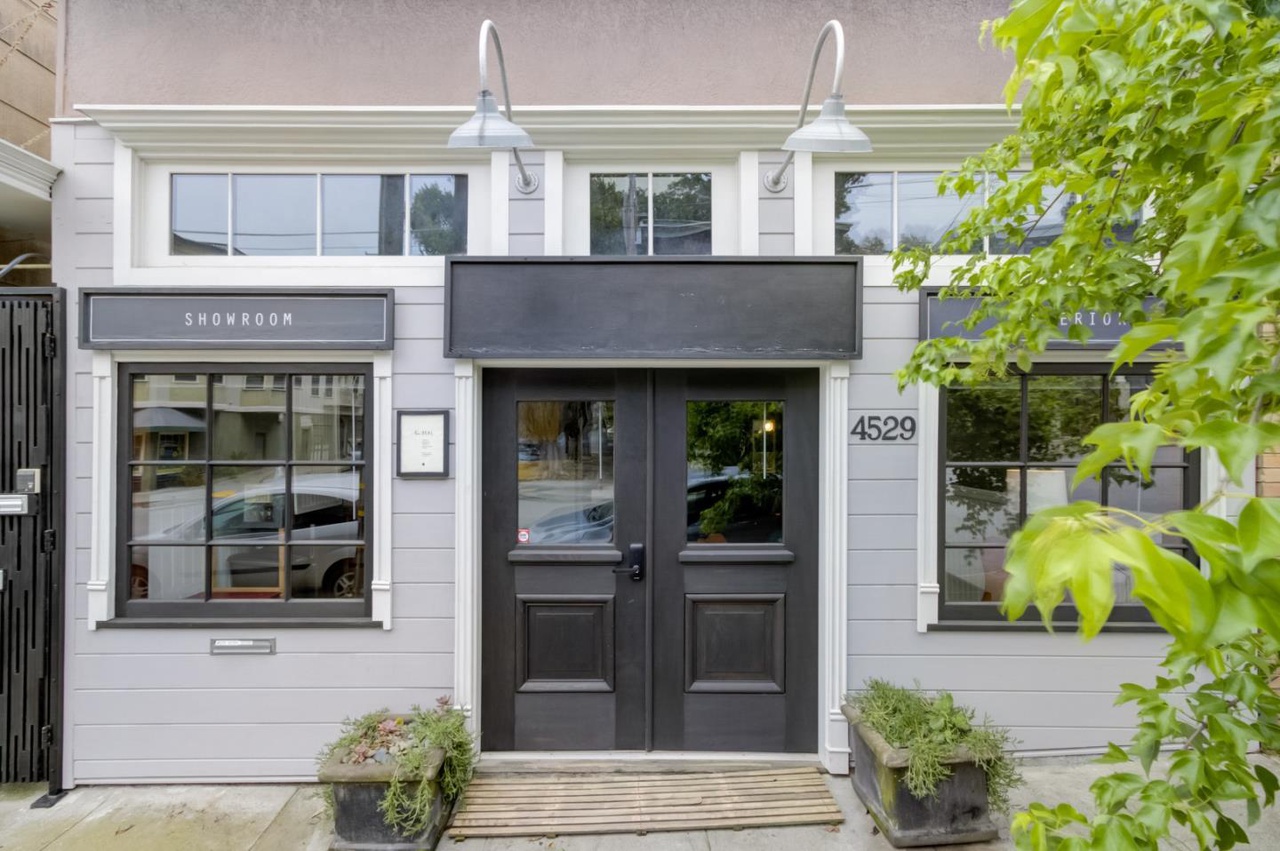The Riccomi Building at the edge of the Castro was listed for sale in San Francisco on Friday morning. The two-bedroom, one-and-a-half bathroom home has its own private storefront—and a colorful history to match it.
Eight years before Prohibition began in 1920, the property was listed as Riccomi Angelo Fruits in a city directory. But what may have appeared to a casual passerby as a nondescript grocery store actually became a front for a secret winemaking operation.
While the Redfin listing simply notes the property’s “intriguing history,” there’s a lot more to the story.
Joe Riccomi, along with his wife, Nell, recounts his family’s history in an interview preserved by California Revealed, a California State Library initiative.
An unassuming closet in the rear of the store had a hidden door—one that today leads into a two-bedroom condo but previously was the space of a bootlegging operation. The grape-pressing area is now the living room, and the cask rooms are the bedrooms.
“There’s a Catholic Church a few doors down,” said Michael Zehner, the current owner of the property. “And it was a customer.”
An exemption was made for holy wine during Prohibition, and the Riccomis supplied the Most Holy Redeemer Church in the 1920s.
There’s still tar on the floor in the back of the building, according to Zehner, which was once used to protect the wood floor from moisture during the winemaking process.
According to Joe Riccomi, his father the bootlegger was caught only once. The police picked him up and took him to the commanding officer instead of to jail.
“The C.O. says, ‘Well, we’ll drink the wine tonight, and if it’s any good, then all right,’” Joe Riccomi recounted in a 1981 recorded interview. “’If it’s not, we’re gonna shoot ya.’”
Fortunately for the Riccomi family, the officers got drunk—and asked for more. Or so the story goes.
The 1,200-square-foot property is listed for $1,298,000.
